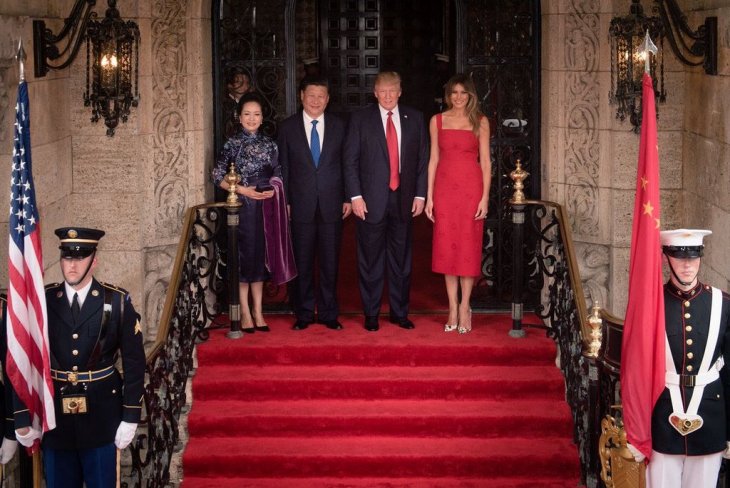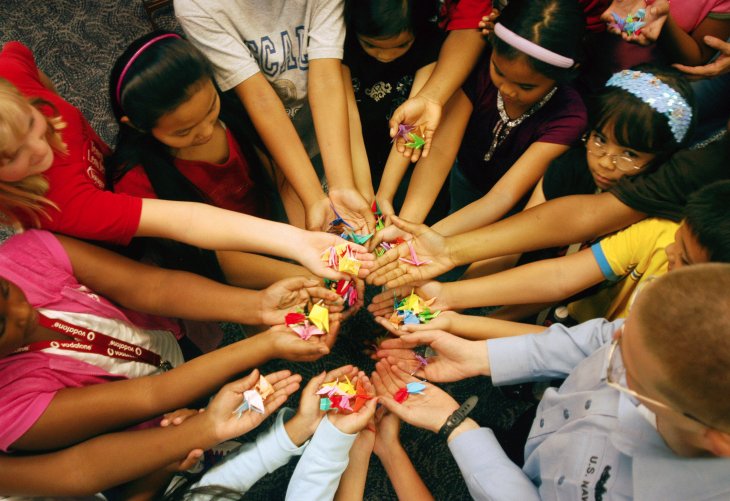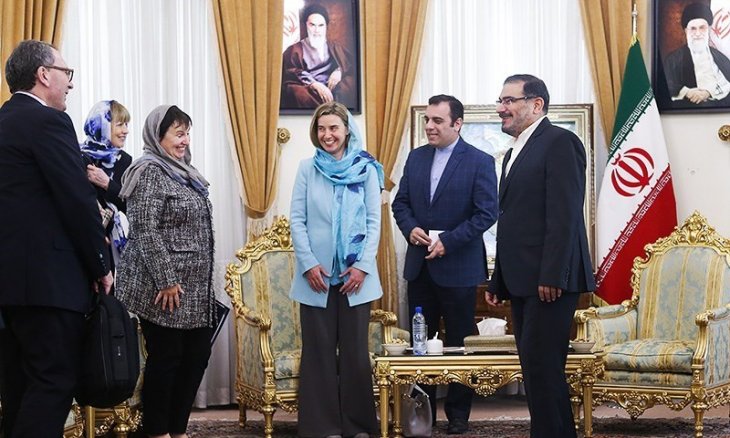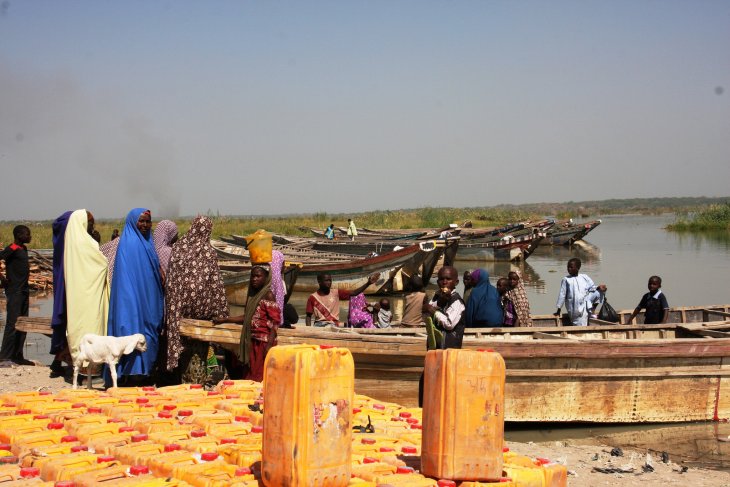Lee Jarvis and Tim Legrand report on their research into how the UK Parliament debates whether or not to extend its list of proscribed terrorist organisations that is based on their article ‘I am somewhat puzzled’: Questions, audiences and securitization in the proscription of terrorist organizations’ published in Security Dialogue Vol 48, Issue 2, 2017 The United Kingdom… Read more »
‘Our Values’ in Times of Terror
Last fall I spent two months in Poitiers, France as a visiting researcher at Migrinter. The last time I lived in France before that was in 2008, just when the financial crisis fully hit. A lot has changed since then, some of it directly or indirectly linked to the financial crisis.
High unemployment rates; several terror attacks carried out by ISIS (sympathizers); the growth of the opposition party Front National, which still at the time of writing has a real chance to enter a government position in this year’s elections.

Public Domain / Wikimedia Commons
In this landscape, it is said that the primaries leading up to the presidential election in France have to a great extent circled around ‘identity’. And indeed, the ever so strong égalité, liberté, fraternité are a repeated mantra written in bold letters on public buildings, from town halls to schools and other institutions. They were also repeated references in the one-year commemorations of the November 2015 terror attacks in Stade de France, and in the Bataclan theatre and restaurants and bars nearby, killing 130 people.Read More
Is China helping Trump, or is Trump helping China?
When Chinese president Xi Jinping met US president Donald Trump in Florida on 6–7 April, Xi convinced his host that it is not easy to exert influence on North Korea, but apparently promised to help the United States to the best of his ability. In practice, it may be Trump who helps China.

POTUS & FLOTUS welcoming President of China, Xi Jinping, & Madame Peng Liyuan to the US. Photo via Donald Trumps Twitter account
Following the summit at his holiday paradise of Mar-a-Lago, Trump has said that he promised Xi favourable trading terms with the United States on the condition that Xi helps the United States against North Korea.
Many people are asking whether China can or will deliver. There are means of exerting forceful pressure, but using them is risky:
- China could invade North Korea and take control of its nuclear facilities, but that could provoke North Korea to launch a nuclear attack on China.
- China could stop supplying North Korea with oil or cut off food supplies, but that would affect ordinary North Koreans, cause famine and result in many people fleeing to China.
- China could stop money flowing to Kim Jong-un’s business enterprises, but then North Korea would become even more desperate in its pursuit of hard cash and might sell its nuclear technology.
- China could try to get someone to seize power from Kim Jong-un, but this could generate violent anti-Chinese sentiments in North Korea if it became known that China was behind such an attempt.
Xi also needs support within his own party for his actions.Read More
This Week in South Sudan – Week 16
Tuesday 18 April Inflation is increasing rapidly as the South Sudanese Pounds (SSP) depreciated further against the US Dollars (USD) in the black market, hitting a new low at USD$1 to 162 SSP, from $1 to 145 SSP the week before. Wednesday 19 April 16 MONUSCO staff were briefly held hostage by unarmed South Sudanese… Read more »
East Asian Peace: Telling Japan to be Proud
To a Tokyo audience of Japanese peace practitioners, academics, journalists and diplomats, I recently chose to address the Japanese as East Asians. I had three important messages to convey:
- You East Asians have a Peace to Defend
- The East Asian Peace is at Risk
- Please overcome your differences and aim for an East Asian Security Community
You East Asians have a Peace to Defend
… and you Japanese can be proud of your historical role in making that peace happen.

Colours of Peace. Students learn and construct Japanese origami cranes from a U.S. Navy Sailor as a symbolic gesture toward peace in Sasebo, Japan. Photo: Joshua J. Wahl, U.S. Navy
For 140 years, from the First Opium War in 1839 to the Sino-Vietnamese War in 1979, East Asia did not experience one single decade without a serious war somewhere: terrible civil wars, colonial wars, wars between states, not least between Japan and China, and wars of American intervention. East Asia was the main battlefield in the global Cold War. During 1946–79, 80 per cent of all battle deaths worldwide happened in East Asia, notably in Vietnam, Korea and China.Read More
This Week in South Sudan – Week 15
Tuesday 12 April Sudan, in collaboration with the World Food Program and the Government of South Sudan (GoSS), has opened a second humanitarian corridor between El Obeid in Sudan and Bentiu in South Sudan. Aly Verjee in African Arguments: “Why calling for a ceasefire in South Sudan can be a bad idea” Wednesday 13 April… Read more »
This Week in South Sudan – Week 14
Monday 3 April The Government of South Sudan (GoSS) halts plan to increase work permit fees for foreigners. The strain on Uganda’s generous refugee policy is starting to show, as Bidi Bidi becomes the world’s largest refugee camp. Tuesday 4 April Reuters: “Refugees recount South Sudan attack: ‘If you ran, you got shot’” Foreign Affairs:… Read more »
This Week in South Sudan – Week 13
Tuesday 28 Mars Conflicting reports on clashes in Kajo-Keji, prisoners of war allegedly freed following a prison raid by the SPLA (IO). New research paper by the Enough Project: “A Way Out? Models for negotiating an exit plan for entrenched leadership in South Sudan Wednesday 29 Mars President Salva Kiir appointed a new governor of… Read more »
Peace Diplomacy: Finding Entry Points for Female Mediators
The Swedish Foreign Minister Margot Wallström has invested in a network of female mediators to strengthen women’s roles in peace and reconstruction processes. However, it is not just the supply of female mediators that is the problem, but the demand as well.

Iran’s SNSC Secretary Shamkhani Meets EU’s Mogherini in Tehran in April 2016. Photo: Mohammad Ali Marizad / Wikimedia Commons
- Where can opportunities be found for women to make contributions to these processes?
- How does a mediation effort actually begin?
- How are individuals appointed to become peace brokers in violent conflicts between countries and groups?
An Incomplete Picture of the Humanitarian Crisis in the Lake Chad Region
The broader context of the humanitarian crisis in the Lake Chad region, particularly in Borno State in the northeast of Nigeria, remains largely unknown to a Western audience, and in the media coverage it is mostly the stories about Boko Haram’s atrocities that are being told.

Fleeing the Boko Haram. Nigerians on the shores of Lake Chad. Photo: EC/ECHO/Anouk Delafortrie. CC-BY via Flickr
This was also the focus at the donor conference held in Oslo on February 24. Everybody condemned the jihadist group Boko Haram. But the decision-makers gathered in the cold Norwegian winter, worlds away from the heat of the Sahel’s dry season, made no mention of the share of responsibility of the anti-terrorism coalition formed by the armed forces of Nigeria, Chad, Niger, and Cameroon.